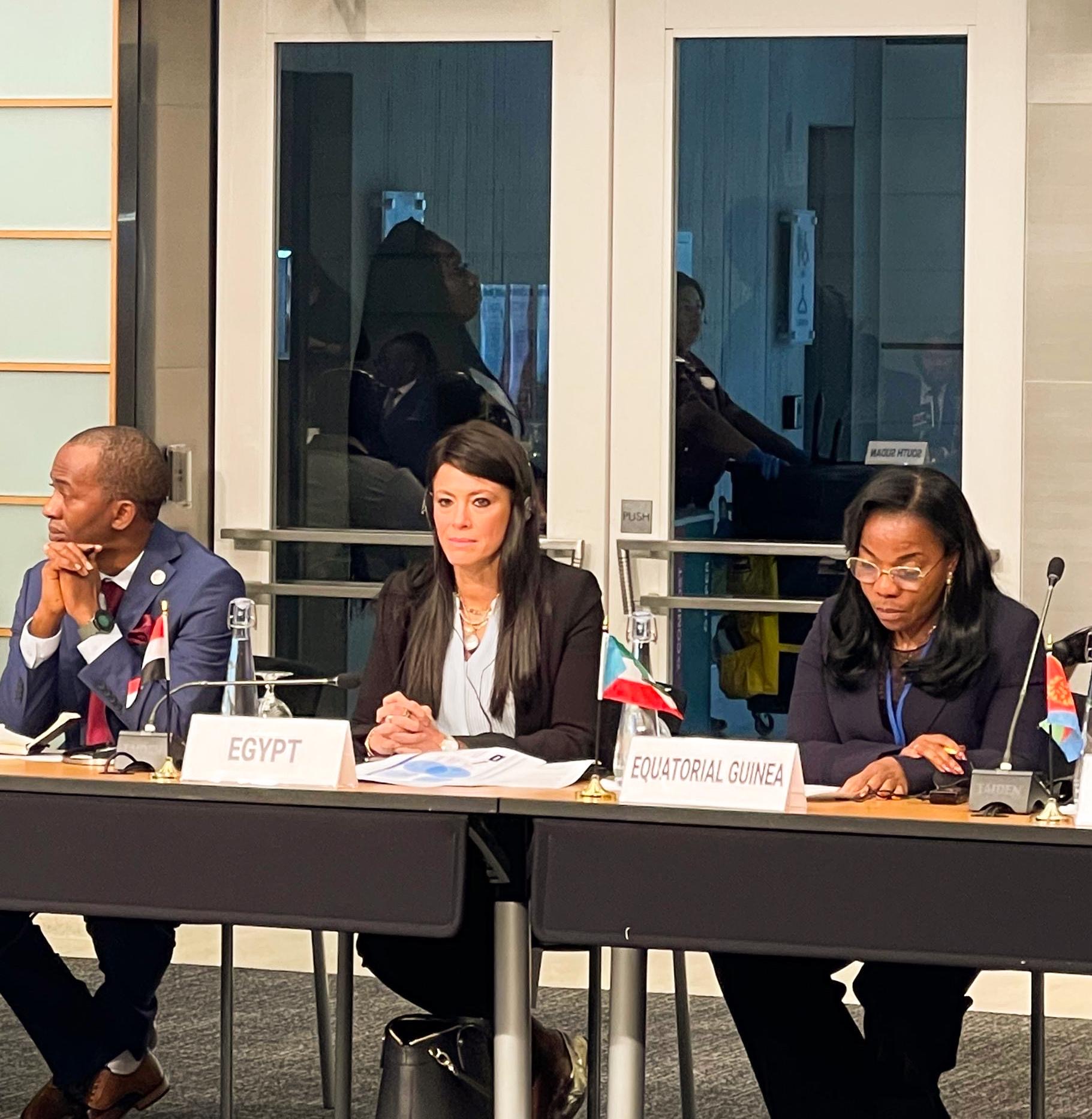H.E. Dr. Rania Al-Mashat commends the World Bank’s initiative to promote the manufacturing of medicines and vaccines in Africa and to enhance health security
• H.E. Dr. Al-Mashat: Africa imports more than 90% of its vaccines and medicines, which makes it vulnerable to global supply chain disruptions
• The need to localize the pharmaceutical industry and its related industries and to unify regulatory frameworks through the African Continental Free Trade Agreement
• World Bank Vice President: Egypt is making significant progress in the green transformation and in localizing industries related to renewable energy
H.E. Dr. Rania Al-Mashat, Minister of Planning, Economic Development and International Cooperation, participated in the African Caucus of Governors of African countries at the World Bank, which was held as part of the 2025 Annual Meetings of the International Monetary Fund and the World Bank Group. The session discussed the continent’s efforts towards economic transformation and strengthening healthcare services, with the participation of Mr. Ajay Banga, President of the World Bank.
In her remarks, H.E. Dr. Rania Al-Mashat commended the World Bank Group’s response to the African Caucus’s call to promote local manufacturing of essential health products, noting that the AIM2030 initiative represents a strategic effort currently being implemented on a pilot basis in nine African countries. She added that the initiative reflects a strong commitment to strengthening intra-African trade and building a resilient and self-reliant health system.
H.E. Dr. Al-Mashat stated that Africa, which is home to about 1.4 billion people and bears 25% of the global disease burden, produces only 3% of its pharmaceutical needs and 0.1% of its vaccines, while relying on imports for 99% of vaccines and 90% of medicines. This makes the continent highly vulnerable to global supply chain disruptions, as witnessed during the COVID-19 pandemic.
She added that gaps in infrastructure—including electricity, transport, water, and medical facilities—limit the continent’s ability to respond and grow, with an annual financing need estimated at around 155 billion dollars, stressing the urgency of collective action to address these gaps.
H.E. Dr. Al-Mashat emphasized that the AIM2030 initiative represents a genuine opportunity for transformation, not only to ensure health security, but also to support economic growth and job creation. She explained that while Africa’s pharmaceutical market is valued at approximately 30 billion dollars, the continent attracts less than 5% of global foreign direct investment. By establishing regional manufacturing hubs, logistical networks, and facilitating technology transfer, the initiative can generate hundreds of thousands of skilled jobs and help prepare a new generation of African scientists and technicians.
The Minister added that to achieve this vision, it is essential to localize value and supply chains through investments in infrastructure, cold-chain systems, and digital tracking technologies, and to enable comprehensive production by promoting technology transfer, licensing, and human capacity development. She further stressed the importance of unifying regulatory frameworks through the African Medicines Agency and joint procurement mechanisms under the African Continental Free Trade Area, in addition to mobilizing innovative financing.
H.E. Dr. Al-Mashat highlighted that with the World Bank Group’s coordination role, these objectives can be realized. By 2030, the AIM2030 initiative could double the volume of local pharmaceutical manufacturing and expand access to affordable medicines. By 2040, Africa could produce 60% of its vaccine needs, achieving the African Union’s vision. She expressed her anticipation for the official launch of the AIM2030 initiative at the beginning of 2026.
For her part, Ms. Anna Bjerde, Vice President of the World Bank, praised Egypt’s outstanding progress in wind and energy projects and its leadership in localizing industries related to renewable energy, clean transition, and green projects. She emphasized that Egypt is making significant strides in advancing its green transformation and renewable energy efforts.
